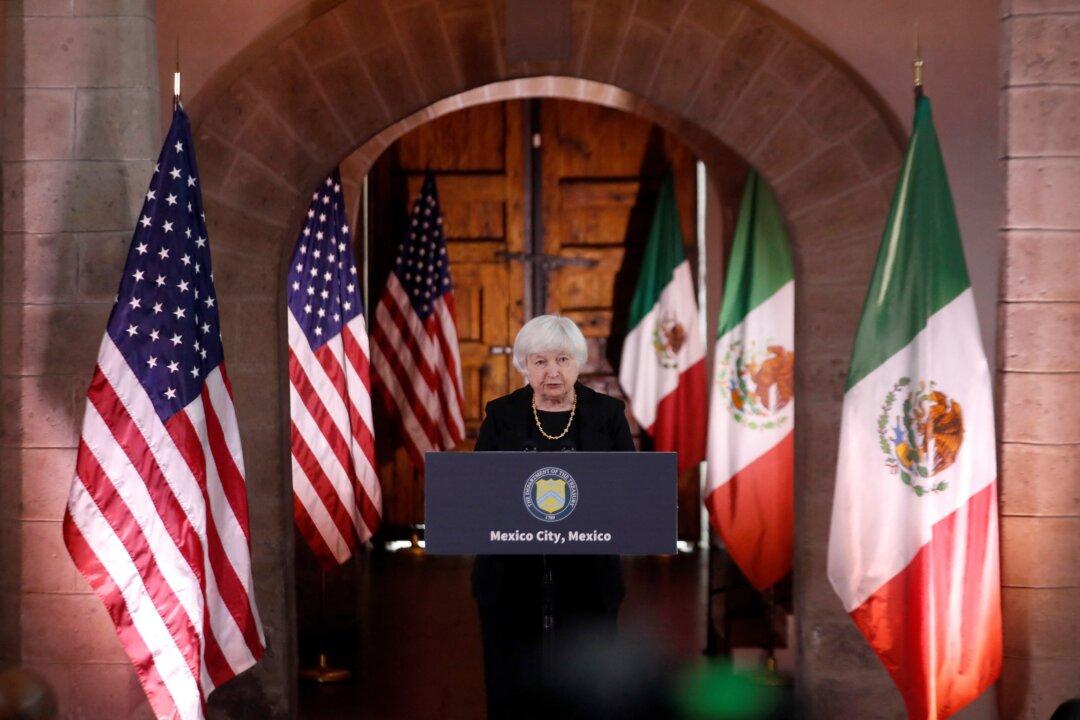MEXICO CITY—The Biden administration announced new sanctions and indictments against Mexican nationals on Wednesday as it seeks to deepen cooperation with the Mexican government to curb flows of the opioid fentanyl to the United States.
U.S. Treasury Secretary Janet Yellen, on her first trip to Mexico since taking office in 2021, announced the new sanctions against 15 individuals and two Mexican companies linked to the Beltran Leyva drug cartel.





